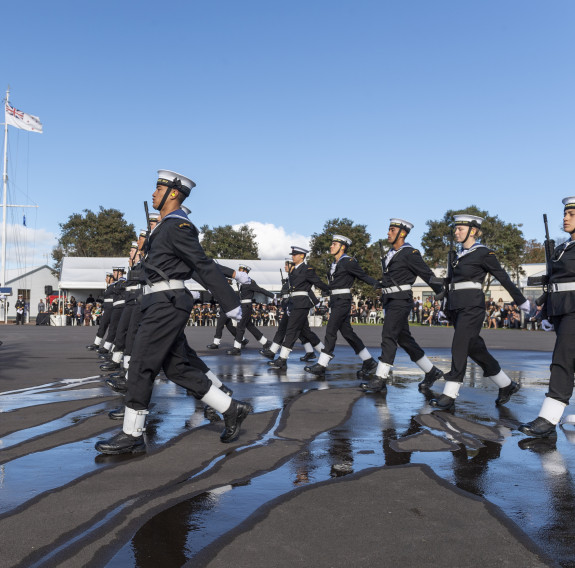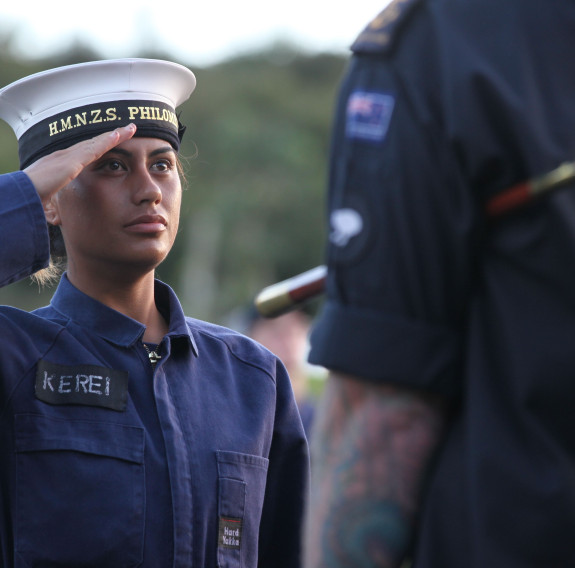Mātauranga me te whakangungu
Education & training
It takes a lot of skills and training to do the things the Navy does. From medical to engineering, navigation to combat, cooking for hundreds to flying a helicopter, the range of trades in the Navy is diverse.
We need our people to be highly trained in what they do, because they may have to do their job in adverse conditions, at a moment’s notice. At these times, we need experts. We need our people to excel and to be the best they can be.
Our people have to handle some of the most advanced technologies in the world. They are provided with the training, education, tools, and equipment necessary to become fully effective in their field.
Each year we run two 15-week Basic Common Training courses, and two 22-week Junior Officer Common Training courses. Within these intakes, personnel get to grips with Navy culture and get familiar with listening to details, following instructions, and learning how to work as a team. On a ship, no-one works alone. As a team, recruits get used to working quickly, with urgency, in order to complete tasks. They learn basic skills like weapon handling, first aid and drill. This is all part of developing an ability to perform tasks in the most inhospitable environments, under the direction of a leader, and in a team with people they can rely on.
After basic training, personnel move on to become an expert in their chosen field. They undertake specialised training on courses, as well as on the job and through sponsored tertiary study. Sponsored part-time study or full-time study is available as well, notably for engineering officers, who study a Bachelor of Engineering at Auckland or Canterbury universities.
The way that we train our personnel has benefits outside the Navy too. The qualifications our people achieve, plus the life and employment skills they gain, are highly sought after in the civilian world. And the skills, character and resilience that they develop in the Navy will also be valuable to the private and public sectors.

